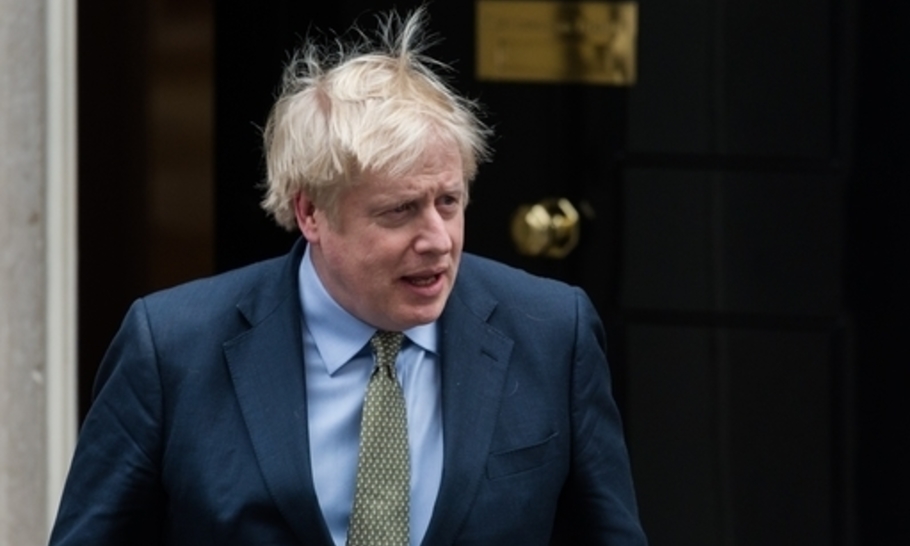Time for Boris to reassure us that we are winning the war on coronavirus

(Photo by WIktor Szymanowicz/NurPhoto)
When Boris Johnson was at Eton, he was already notorious for “winging it”. In a production of Richard III, according to the late Sir Eric Anderson, he was chosen to play the King. “He hadn’t had time to learn the lines, so had pasted them up behind various pillars,” the college ’ s then Head Master later recalled. “The entire performance consisted of him running from one side of the stage to the other and failing to read them properly.”
Not much, some might say, has changed since then. Boris Johnson is now running the country, but his modus operandi is still to rely on a wing and a prayer to get things done. The response to coronavirus has necessarily been improvised everywhere, but the British Government seems to have taken longer than most to get into its stride. Even in the absence of the Prime Minister, as he recuperates at Chequers, the influence of his personality on the direction of policy is still palpable. Just as the lockdown was imposed at the last minute, so its lifting looks likely to be made up as we go along.
Extemporised performances may, like the young Johnson’s Richard III, be more memorable than those that are flawlessly executed. In another of Sir Eric’s anecdotes about our Prime Minister (one of three he taught at Eton and Fettes), he encountered his most incorrigible pupil at Sunday lunch, when Boris was due to deliver a talk that evening to the head master’s essay society. “He said he hadn’t started working. But we still got a very stimulating paper.” For a country confronted with a lethal and incurable virus, however, it is essential that the public has confidence in the competence of those in charge. When it is a matter of life and death — death on a terrifying scale — the last thing we need is government by essay crisis.
The Government’s promise to provide PPE to the social care sector has yet to be delivered, despite enlisting the support of eBay to build a web portal where providers can order kit from the supply chain built from scratch with the help of the Armed Forces. This week it emerged that the system may not be up and running for another five weeks. In France, by contrast, a similar portal was built in 48 hours by the software company Mirakl and came into operation nearly a month ago. Mirakl’s offer to help here too has been rebuffed and its manager, Brendan Walsh, blames British bureaucracy: “Downing Street must become agile and act quickly.” In the Continental media, the British Government’s response to Covid-19 is now contrasted unfavourably with those of its European counterparts.
Enter Nicola Sturgeon, stage left. We may be sure that at Greenwood Academy, the state secondary school in Dreghorn that she attended, bright but eccentric pupils would not have been indulged in the way that Johnson evidently was. South of the border, the Scottish First Minister is not wildly popular, but she has come up with a detailed plan for lifting the lockdown.
Her call for “a grown-up conversation” with the country about when and how we will return to “a semblance of normality” has been echoed across the political spectrum, not least due to its contrast with the robotic reiteration by UK ministers of their mantras. Matt Hancock looked uncomfortable when he was grilled about the Sturgeon plan. By implying that Holyrood and Westminster were marching in lockstep on the lockdown, the Health Secretary merely vindicated the Scottish critique. If we, the public, have acquitted ourselves well so far, as we keep being told, why can’t we be treated like adults? Is it possible that ministers refuse to do so because they themselves are still dithering?
It is time for the Government to quash such speculation. The Cabinet is still united, at least in public, behind the Prime Minister, who is said to be “very cautious” on lifting the lockdown. He is, of course, an incomparable communicator; the impression of drift during his convalescence might be dispelled by a single public appearance. No doubt his return is being orchestrated by his Mephistophelian impresario, Dominic Cummings, who has already returned to work after a bout of coronavirus.
But the cult of personality, useful as it may have been in time of peril, is no substitute for calm, competent crisis management. The nation is not expecting a miracle worker, merely solid teamwork. When Boris Johnson returns to the political stage, it should not be as a deus ex machina, but as the head of a smoothly functioning machine. The greatest heroes in British history were all eccentrics in their way, but they were also outstandingly good at their jobs. The Prime Minister’s ability to connect with the public is a precious commodity, to be used only when he is ready to take the country into his confidence. Shakespeare’s Richard III declares: “The King’s name is a tower of strength.” Boris no longer needs prompting to dominate the stage. Now he must not only learn his lines, but write them too.





